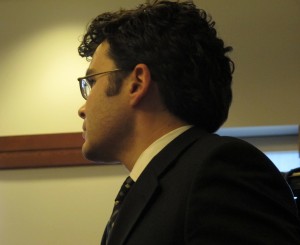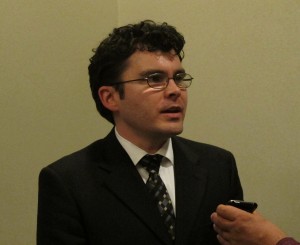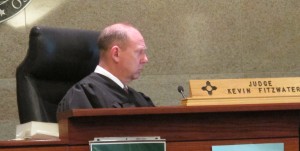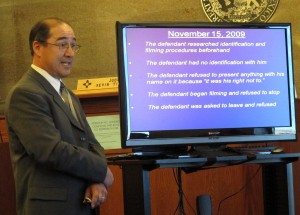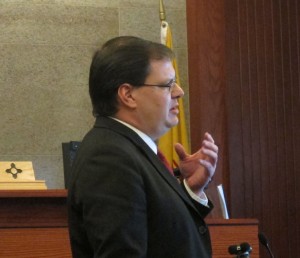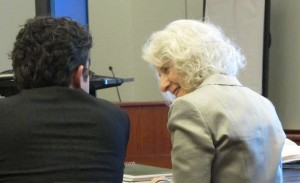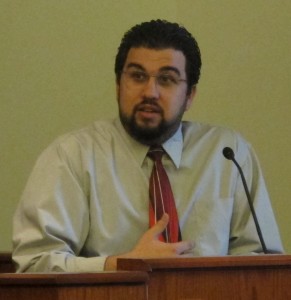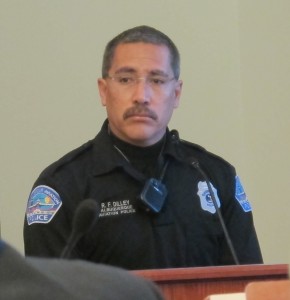The U.S. Department of State is proposing a new Biographical Questionnaire for passport applicants. The proposed new Form DS-5513 asks for all addresses since birth; lifetime employment history including employers’ and supervisors names, addresses, and telephone numbers; personal details of all siblings; mother’s address one year prior to your birth; any “religious ceremony” around the time of birth; and a variety of other information. According to the proposed form, “failure to provide the information requested may result in … the denial of your U.S. passport application.”
The State Department estimated that the average respondent would be able to compile all this information in just 45 minutes, which is obviously absurd given the amount of research that is likely to be required to even attempt to complete the form.
The proposed “Biographical Questionnaire” follows the introduction in December 2010 of a new Form DS-11 for all passport applicants. It seems likely that only some, not all, applicants will be required to fill out the new questionnaire, but no criteria have been made public for determining who will be subjected to these additional new written interrogatories.
It’s not clear from the supporting statement, statement of legal authorities, or regulatory assessment submitted by the State Department to the Office of Management and Budget (OMB) why declining to discuss one’s siblings or to provide the phone number of your first supervisor when you were a teenager working at McDonalds would be a legitimate basis for denial of a passport to a U.S. citizen.
The State Department is accepting comments for OMB on this proposal on this proposal for 60 days, which began February 24, 2011, and thus should run through April 25, 2011. (Under the Paperwork Reduction Act, OMB must approve and assign an OMB control number before any new form can be used.) Details and instructions for submitting comments are in the Federal Register notice (also available here as a PDF):
You may submit comments by any of the following methods:
E-mail: GarciaAA@state.gov
Mail (paper, disk, or CD-ROM submissions): Alexys Garcia, U.S. Department of State, 2100 Pennsylvania Ave., NW., Room 3031, Washington, DC 20037
Fax: 202-736-9202
Hand Delivery or Courier: Alexys Garcia, U.S. Department of State, 2100 Pennsylvania Ave., NW., Room 3031, Washington, DC 20037
You must include the DS form number [DS-5513], information collection title [Biographical Questionnaire for U.S. Passport], and OMB control number [none yet assigned; 1405-XXXX requested by Dept. of State] in any correspondence.
Alternatively, you can submit comments online at Regulations.gov until midnight EDT on Monday, April 25, 2011. Go here, then click the “Submit a Comment” button at the upper right of the page.
(Note that the proposed form itself was not published in the Federal Register. We were eventually provided with a copy after requesting it from the Department of State, and have posted it here.)
We’ve submitted comments, and we encourage others to do so as well.
Our comments (PDF) were co-signed by the Center for Financial Privacy and Human Rights (CFPHR), Knowledge Ecology International (KEI), Center for Media and Democracy (CMD), Privacy Activism, Consumer Travel Alliance (CTA), Robert Ellis Smith, and John Gilmore. If you would like to use these for ideas for comments of your own, here’s a version in OpenOffice format for easier editing.
You can view the comments docketed to date here. (There’s sometimes a delay of up to several days before comments are docketed, so don’t panic if you don’t see yours immediately.)
Extra points to the person who gives the best answer in the comments to the question, “”Please describe the circumstances of your birth including the names (as well as address and phone number, if available) of persons present or in attendance at your birth.”
[P.S. – To those who have been wondering if this is a hoax: We understand that it may seem fishy that the State Department chose to publish a notice in the Federal Register that it was proposing a new form, but didn’t publish the proposed form itself in the Federal Register. But that was their choice of how to proceed, not ours. We were sent the proposed Form DS-5513 in March, in response to our request, by the person identified in the Federal Register notice as the point of contact from whom it could be obtained: Alexys Garcia, GarciaAA@state.gov, 212-736-9216. We immediately published the form we received from the State Department here on our website. There’s more at the links in the sidebar on who we are and how to contact us, as well as links to press reports on our previous work and current projects. You can also check out the other co-signers of the comments we submitted to the State Department. We’re for real, and so is this proposal from the State Department. We wish this were a hoax, but it’s not.]
[Follow-up: Public outrage at proposed questionnaire for passport applicants]
[Follow-up: State Dept. already using illegal passport questionnaire]
[Follow-up: State Dept. responds to passport form furor — with lies]
